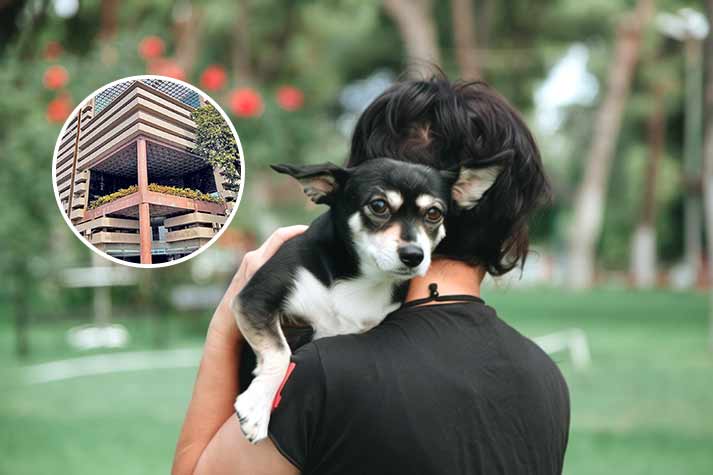
02 Jul
When Pets End Up in Court the Legal Turf Wars Playing Out Across Delhi
They don’t file affidavits, hire lawyers, or speak for themselves. But increasingly, pets are becoming the unspoken protagonists of legal showdowns in Delhi. From fallout after failed relationships to neighbourly tensions, and even police complaints, both domesticated and stray animals are turning up at the centre of legal and emotional conflict in the capital.
The scenarios are often as complex as any high-stakes civil matter. In 2023, Prabhat Kumar, a senior advocate living in Vasant Kunj, South Delhi, filed a civil suit against his neighbours after their large pet dog allegedly chased him, causing him to fall and fracture his wrists. Kumar demanded INR 48 lakh in compensation, citing medical bills, loss of income, and emotional trauma. The Patiala House court ultimately awarded him INR 10.61 lakh, a figure that acknowledges both the physical injury and the broader disruption to his life.
Custody disputes, too, have become a familiar theme. In February 2024, animal rights NGO People for Animals intervened in what they believed was a case of pet cruelty, seizing three dogs from a man named Sahil in Dabri. The dogs, two Pekingese and a Beagle, were allegedly confined in cages in poor living conditions. Sahil fought back, claiming lawful ownership and alleging that the activists trespassed and forcibly removed his pets.
Following a court directive, an FIR was filed in April at the Dabri police station. The activists, Rajesh and Kabita Haldar, were denied anticipatory bail by a sessions court and took their case to the Delhi High Court. They argued that their intervention was driven by concern for the animals' welfare.
Advocate Namita Roy told The Indian Express, “We told the court that we have no issue giving him custody if he gives an undertaking that he is the lawful owner — with proof... All three dogs have now been adopted and are safe and happy.” The High Court eventually granted them anticipatory bail, noting that while the allegations were serious, they revolved around animal welfare, not grave harm, or financial fraud.
But perhaps no pet dispute has drawn as much public attention as the fallout between TMC MP Mahua Moitra and lawyer Jai Anant Dehadrai over the custody of Henry, Moitra’s Rottweiler. This was no ordinary disagreement, as it played out in parallel with high-profile political accusations, drawing public interest into what might otherwise have been a private matter.
Elsewhere, seemingly minor pet-related grievances have escalated into full-blown litigation. In January 2023, an elderly couple in a South Delhi apartment complex petitioned the High Court to remove a stray dog from their building premises. The dog, they said, frequented the shared stairwell where it was fed and cared for by second-floor residents. While those residents denied responsibility, the conflict moved from court to mediation.
“There were a lot of emotions involved during mediation,” said Veena Ralli, senior mediator at the Delhi High Court Mediation Centre. “Children, with tears in their eyes, were here at the mediation centre while we scratched our heads on how we could solve this pickle...” Despite nearly a year of back-and-forth, no resolution emerged. By May 2024, the dog had passed away — but the legal entanglements persisted, with the elderly couple demanding apologies and reimbursement of court fees before agreeing to drop the case.
Some disputes have echoes of classic custody battles, only this time, the concern is a pet, not a child. One case Ralli handled involved a divorcing couple. The husband agreed to give up his share of the house, but only if visitation rights to the pet dog were guaranteed. He wanted specific days, pick-up and drop-off timings, and formal recognition of his bond with the animal. The emotional stakes were high, and the structure of the agreement rivalled any joint custody order.
Delhi isn’t alone in facing such canine and feline courtroom drama either. On June 10, the Karnataka High Court was forced to intervene in an odd dispute between neighbours in a Bengaluru apartment complex. A woman accused her neighbour of “kidnapping” her pet cat, Daisy. The presiding judge, Justice M Nagaprasanna, was unsparing in his commentary: “Cat named Daisy has driven everyone crazy.” He criticised the police for registering the case without merit and warned against wasting legal resources on emotional disputes dressed up as criminal offences.
This was not the judge’s first feline-related brush with law. In late 2024, he stayed an investigation into a man accused of animal cruelty after it emerged that his wife’s grievance stemmed from his devotion to their pet cat. However, the story took a darker turn when the woman later accused him of physical and emotional abuse. While the court quashed the charges against his family members, it allowed the case against the man to proceed.
What these cases collectively reveal is a growing societal shift: pets are no longer treated as mere property or background figures in household life. They have become part of the family, and in some cases, central to its legal unravelling. But as courts juggle these emotionally fraught cases, they must also tread a fine line between empathy and legal rigour.
For now, the judicial system seems to be adapting, slowly but steadily, to the new emotional realities that come with pet parenthood in modern India. The animals at the heart of these disputes may be voiceless, but they are far from invisible.






AUTHOR’S BIO
Carry My Pet
Passionate pet enthusiasts and globetrotters, dedicated to easing furry friends' journeys worldwide. Penning tales of compassion at CarryMyPet, where every relocation is a tail-wagging adventure.